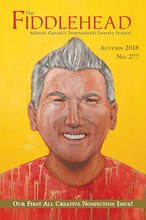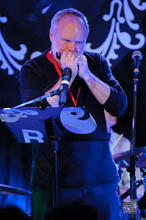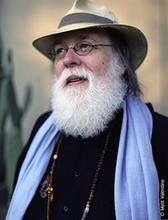Posted on July 5, 2022
Summer 2022 Editorial
A story. A story. Please tell me a story.
I grew up around storytellers. My paternal grandmother offered up family stories alongside Sunday dinners. I myself performed storytelling in schools as an elementary schoolteacher, prior to becoming a writer. When someone shares a personal account, they are offering up the truth of their experience. What a gift that is to be shared and received. That is why I feel so honoured to be The Fiddlehead’s creative nonfiction editor for this special summer CNF issue that is most dear to my heart.
Posted on April 27, 2022
Remembering Steven Heighton
By Mark Jarman
Posted on April 21, 2022
The delicate interplay between past and present, what we carry with us, what we leave behind, and what others take from us is rendered in pitch-perfect prose in “The Makeweight Piece.” This story is set during a distant war in which the starving and the dying cling to art as prayer. As worship. As a way to define who they once were. So much heart is packed between the lines of a story whose tone is at once tightly focused and expansive that my own heart staggers and cracks open. As a reader I’m dying to be touched and amazed.
Posted on November 4, 2021
Our 2021-22 publishing intern Bailey Noiles will be sampling The Fiddlehead back issues and summarizing their contents, offering you interesting tidbits about our publishing past.
Issue 277 is the first installment. Enjoy!
Posted on October 1, 2021
Creative Nonfiction Contest Editorial
Posted on July 16, 2021
Posted on January 20, 2021
Fiction contest judge, Shashi Bhat's editorial on Elise Thorburn's winning story Rubens' Salmon:
Posted on January 11, 2021
"I often asked famous writers for addresses with the hope of obtaining work for The Fiddlehead; almost no one ever responded to my emails later, but Marvin replied with genuine enthusiasm, and so began a longtime relationship with the magazine."
Retired Editor Ross Leckie remembers Marvin Bell.
Posted on July 27, 2017
2017’s Summer Fiction Issue showcases great, sensuous stories from the east coast and west coast and around the world, including a wolf guarding a woman trapped in a crashed car, a teen’s fascination with shooting guns, a secret computer file and a zebra rug, flashers in the woods, a very funny exchange of old and young secretly sparring in a London restaurant, and of course, appropriation of Oscar Peterson’s piano bench in Australia.
Posted on May 15, 2017
By Ross Leckie, Editor.
I first came to the poetry of Norman Dubie as a student lurking in second-hand bookstores, finding bedraggled copies of his books, and taking them home with me. Well, I did pay for them, and then they paid me back. “These poems are as simple as ice,” I thought. Then I thought, “These poems are as damned complicated as ice. Slippery too.” If the devil is in the details, then so are the many gods of the living and the dead, and how we speak to them.
Pages















